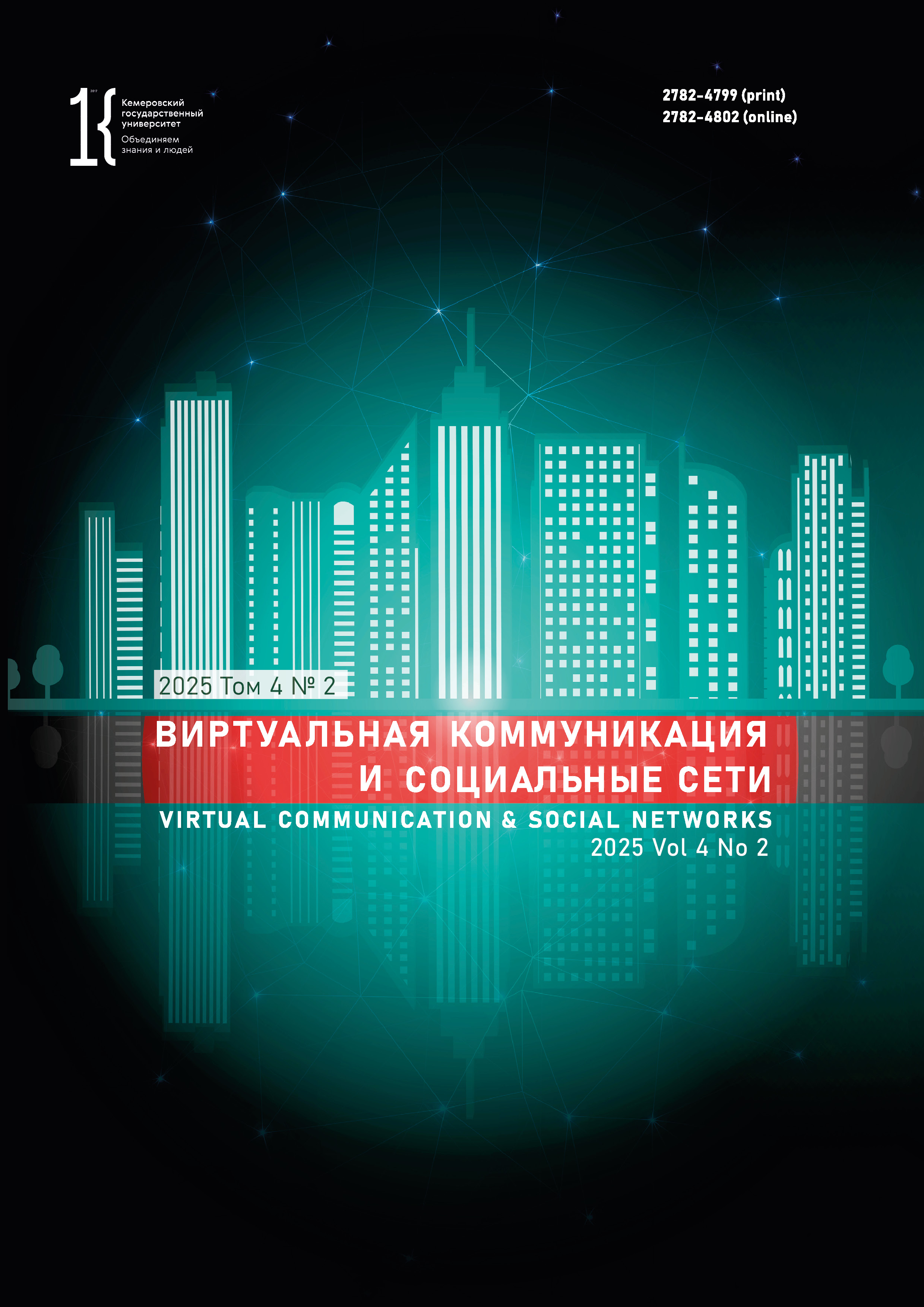St. Petersburg, Russian Federation
St. Petersburg, Russian Federation
St. Petersburg, Russian Federation
St. Petersburg, Russian Federation
Digital technologies, in particular, chatbots, can revitalize indigenous languages. In this research, a chatbot was used as a digital tool to teach the Khanty language spoken in Russian North. A bibliometric analysis based on the R language revealed the relevance of this approach for other multilingual communities worldwide. Today, the Khanty language is revitalized in such projects as Language Nests and Nomadic Schools and Kindergartens. The authors developed a draft product for teaching Khanty as part of family education. Though addressed mainly to children, it can help parents who would like to remember their native language while encouraging their children to learn their native culture. Using game mechanics, people can listen to or read Khanty fairy tales in Russian and in the Kazym dialect of the Khanty language, do vocabulary and grammar exercises, and find out about Khanty traditions and rituals. Telegram bots have a great potential for preserving and popularizing indigenous languages in the context of social globalization and digitalization.
telegram bot, language learning via telegram, Khanty language, Khanty culture, minor languages of Siberia, Kazym dialect of the Khanty language
1. Arefiev A. L. Languages of the indigenous minorities of the North, Siberia, and the Far East in education system: Past and present. Moscow: Centr socialnogo prognozirovanija i marketinga, 2014, 488. (In Russ.)
2. Galyamov A. A. The implementation of the "Camp School-Garten" for indigenous peoples' children of the North (results of monitoring in 2022). Sociodynamics, 2022, (12): 59–67. (In Russ.) https://doi.org/10.25136/2409-7144.2022.12.39241
3. Granichina O. A., Zharova M. V., Agapova E. N., Trapitsyn S. Yu. The quality of teaching Khanty and Mansi languages in the Khanty-Mansi Autonomous Okrug – Yugra as the factor of their keeping and development. Bulletin of Ugric Studies, 2021, 11(4): 760–770. (In Russ.) https://doi.org/10.30624/2220-4156-2021-11-4-760-770
4. Gulyaeva Ch. I., Popova A. M. The experience of using an educational Telegram bot in math lessons in 5th grade. Modern Problems of Pedagogical Education, 2024, (84-3): 142–146. (In Russ.) https://elibrary.ru/icsnvb
5. Gutnev M. Yu. International scientific cooperation of the Russian Federation in the field of protection of rights, preservation of cultures and languages of the Arctic ethnic groups. Polar readings – 2022: Proc. X Sci.-Prac. Conf., St. Petersburg, 18–22 May 2022. Moscow: Paulsen, 2023, 252–262. (In Russ.)
6. Dolzhenko S. G., Bayanova E. V. "Linguistic cluster" as a means to solve the problem of extinction of languages of the indigenous peoples of the north. Philology. Theory & Practice, 2016, (6-2): 191–193. (In Russ.) https://elibrary.ru/vuyvzd
7. Zamyatin K., Pasanen A., Saarikivi J. Why and how to preserve the languages of Russia’s peoples? Helsinki: University of Helsinki, 2012, 150. (In Russ.)
8. Kaksin A. D. Kazym dialect of the Khanty language. Khanty-Mansiysk: UgraSU, 2010, 175. (In Russ.) https://elibrary.ru/qvyiir
9. Karpova I. P. Databases. Course of lectures and materials for practical tasks. Moscow: Piter, 2013, 240. (In Russ.)
10. Kolmogorova A. V. Engineering linguistic technologies in text studies. Terra Linguistica, 2023, 14(1): 7–10. (In Russ.) https://doi.org/10.18721/JHSS.14101
11. Mednikova L. A. Activity pedagogic projecting as an efficient educative technology. Vestnik of Kostroma State University. Series: Pedagogy. Psychology. Sociokinetics, 2017, 23(2): 12–14. (In Russ.) https://elibrary.ru/zqpucl
12. Sputai A. P. Minor languages in the language policy context: Case of St. Petersburg. Novelty. Experiment. Traditions (N.Ex.T), 2024, 10(3): 56–65. (In Russ.) https://elibrary.ru/pwjays
13. Trofimchuk A. A. Methodology of reading authentic compositions with gradual involvement in the text. The Scientific Heritage, 2021, (67-4): 47–51. (In Russ.) https://doi.org/10.24412/9215-0365-2021-67-4-47-51
14. Fatkhullova K. S., Yusupova A. Sh., Khaliullina N. U. Ana Tele online school: A modern model of native language learning. Bulletin of the Bashkir State Pedagogical University named after M. Akmulla, 2022, (1-4): 146–151. (In Russ.) https://elibrary.ru/erhkxe
15. Khilkhanova E. V., Kaplunova M. Ya. The first meeting of the analytical discussion club on language policy (Moscow, Institute of Linguistics, RAS, 17 March, 2020). Sociolingvistika, 2020, (1): 124–132. (In Russ.) https://doi.org/10.37892/2713-2951-2020-1-1-124-132
16. Brown K., Faster M. Language nests on the move: The case of Võro pre-primary education in Estonia. FIRE: Forum for International Research in Education, 2019, 5(3): 29–48. https://doi.org/10.32865/fire201953145
17. Burova A., Leisiö L., Sharma S., Thankachan B., Turunen M. Technology inclusion via endangered language learning application: An explorative case study with remote Nganasan community. Academic Mindtrek: Proc. 24th Intern. Conf., Nürnberg, 1–3 Jun 2021. NY: ACM, 2021, 21–32. https://doi.org/10.1145/3464327.3464363
18. Katinskaia A., Yangarber R. Digital cultural heritage and revitalization of endangered Finno-Ugric languages. Digital Humanities in the Nordic and Baltic Countries Publications, 2018, 1(1): 111–121. https://doi.org/10.5617/dhnbpub.11014
19. Shibanova N. A., Makhmutova R. G., Pavlova V. A., Shustova E. V. Russian and Tatar fairy-tales as a means of language learning. Journal of Research in Applied Linguistics, 2020, 11: 276–285. https://doi.org/10.22055/rals.2020.16321
20. Silberschatz A., Korth H. F., Sudarshan S. Database system concepts. NY: McGraw-Hill, 2011, 1349.















